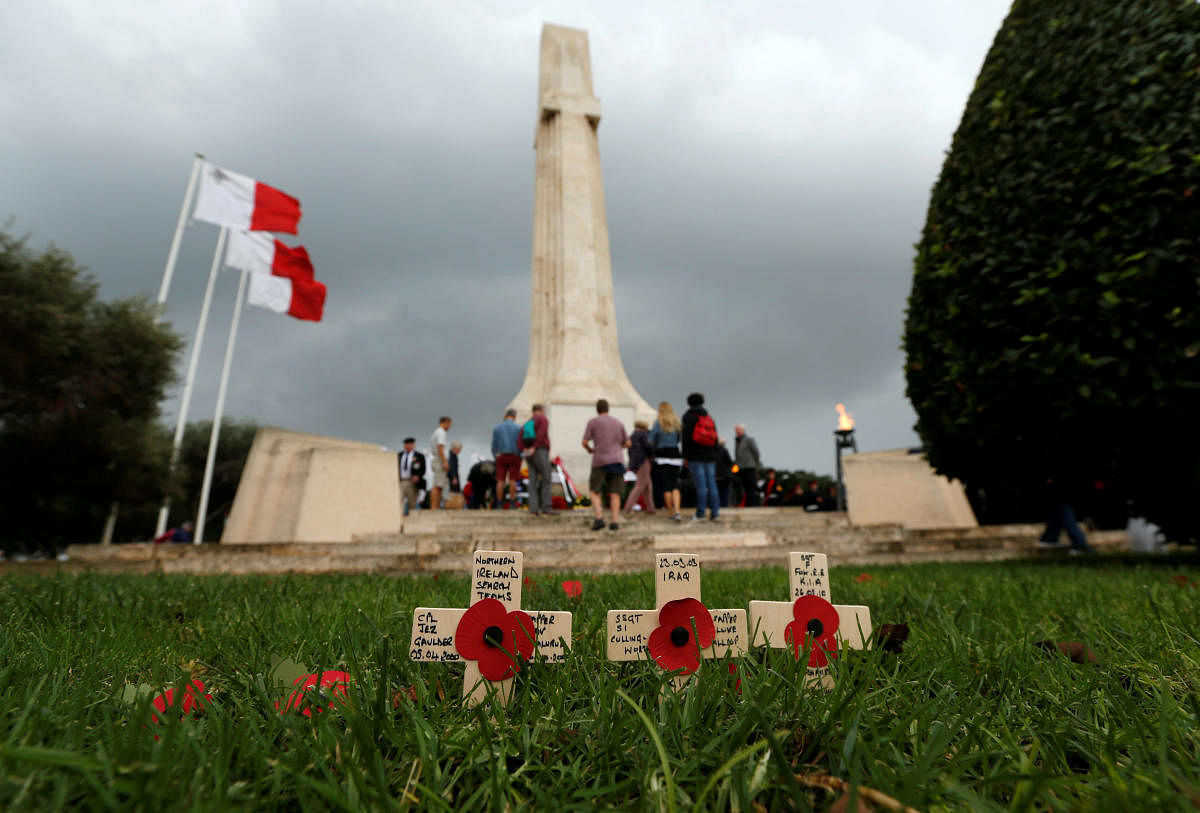On Armistice Day, 100 years after the end of World War I, the world is still not a safer place than it was before that great war. It is also not any safer than at the end of the bigger war that was fought two decades later when the world entered the age of nuclear terror. Last week, leaders from 70 countries, including Emmanuel Macron of France, Angela Merkel of Germany, Vladimir Putin of Russia and Donald Trump of the US, gathered under the Arc de Triomphe war memorial in Paris to commemorate the end of the war. When it was fought and brought to an end, it was thought to be the “war to end all wars’’. But it created such deep divisions and fissures in the geography and politics of the world, especially in Europe, that it swiftly led to the next war. Nazism rose and lost, and maps were drawn again. There are wars being fought in many parts of the world even now. Ominously, a new crop of leaders have risen in the world who have not learnt lessons from the cataclysms of the past.
Macron’s warning at the assemblage of the leaders about “old demons coming back to wreak chaos and death’’ is relevant and pertinent. He said the “selfishness of nations looking after their own interests’’ may trigger new conflicts. German Chancellor Angela Merkel agreed with him. Their view that nationalism is a betrayal of patriotism and can be a threat to peace has relevance in a world torn between nations and within them. Who would know that better than Germany and France. Extreme nationalism is used for aggression and suppression by governments, and it shapes their policies and actions. That is because a wrong identity politics, a sense of separateness and a culture of hatred may be gaining over the sense of oneness, common purpose and cooperation that should form the basis of coexistence in peace. The challenge before the world, in the long shadow cast from the past, is to make the idea of a common humanity prevail over the destructive demons that Macron spoke of.
Armistice Day also provided an opportunity to remember the unsung heroes of the war, including thousands of soldiers from the Indian subcontinent who were killed or wounded in the war. About 74,000 Indian soldiers from the then British empire lost their lives. But victory was white for those who won the war and the contributions of the natives were largely ignored. There is a greater awareness now and statues and memorials have been unveiled for them, too. But memories of wars, victors and the vanquished should ultimately lead to victory over war. Wars do not end wars but only lead to more wars.
